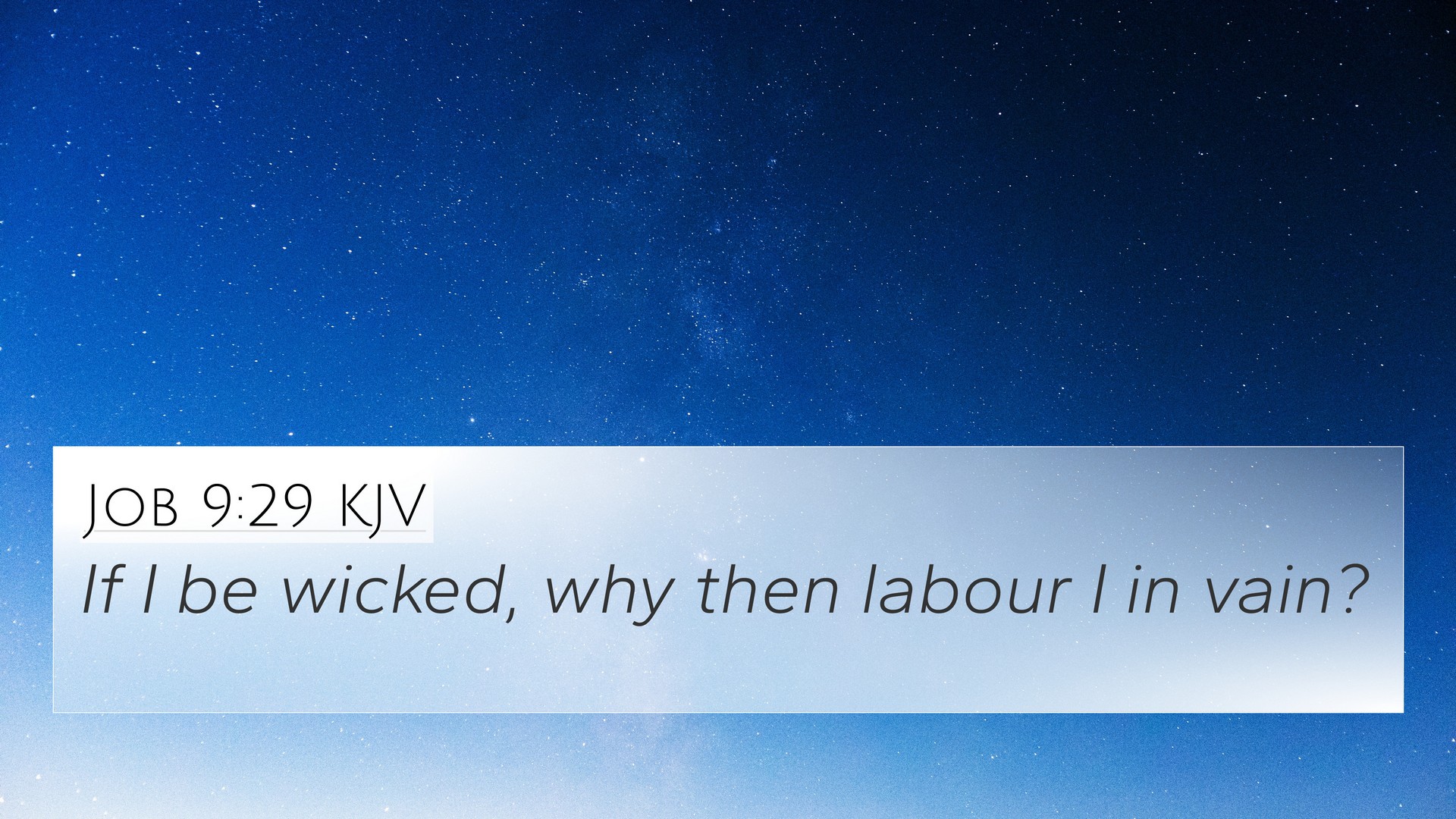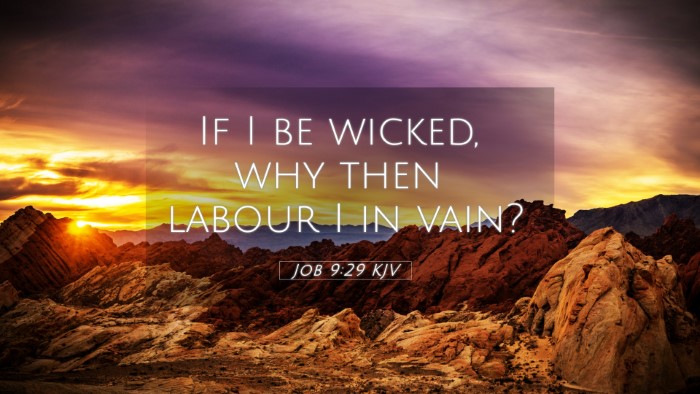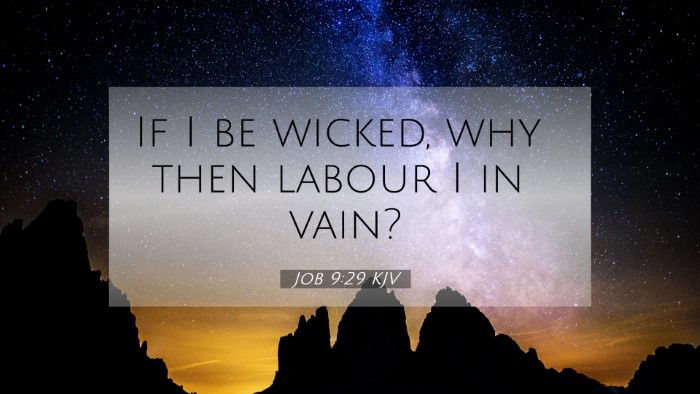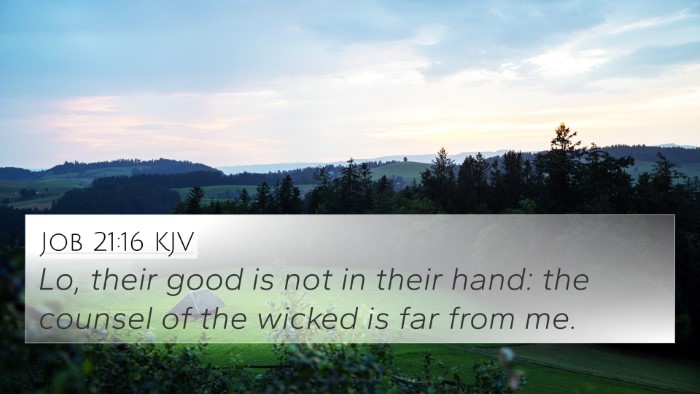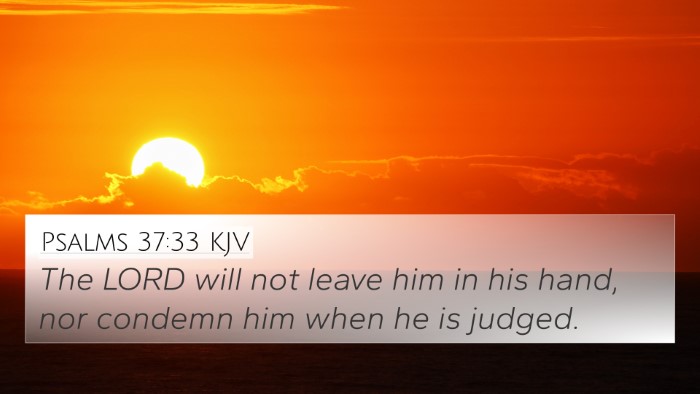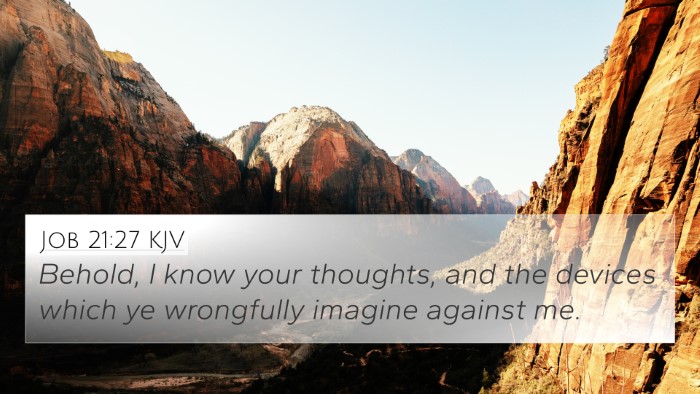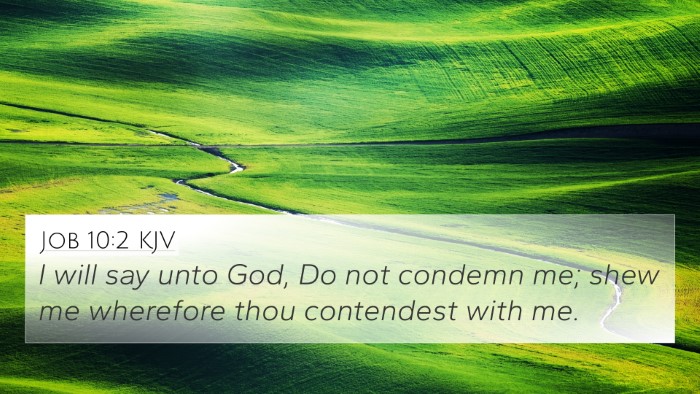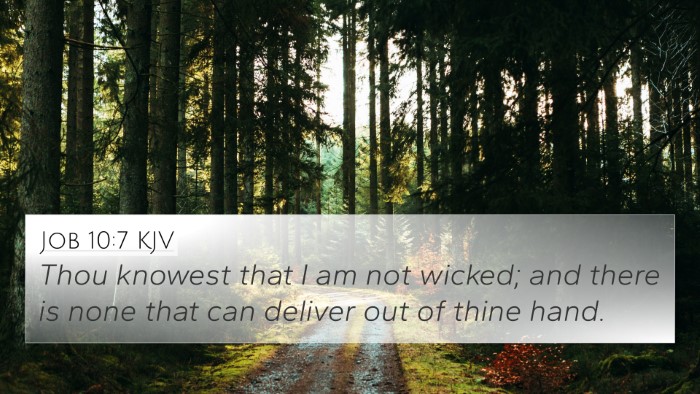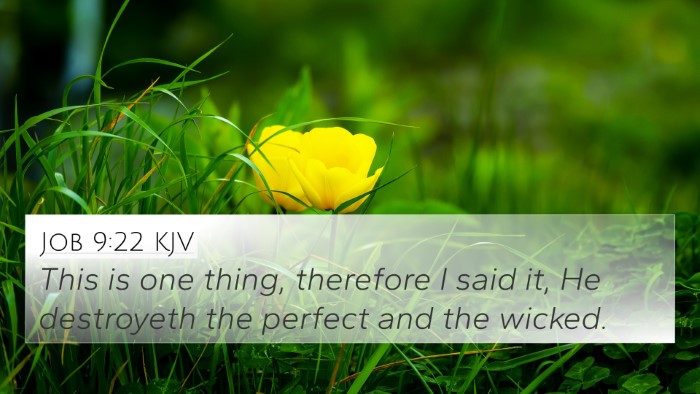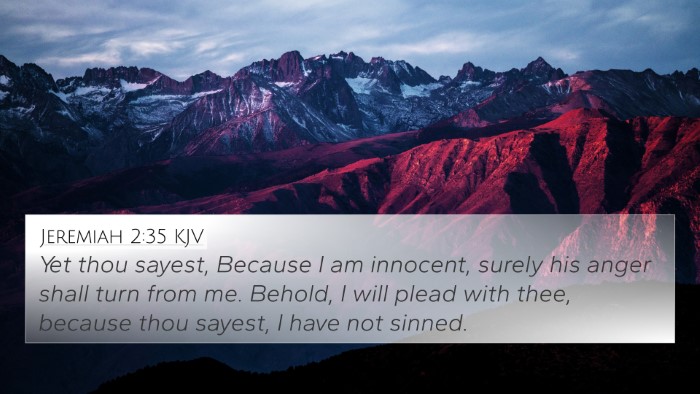Understanding Job 9:29
Job 9:29 states, "Since I am already found guilty, why should I struggle in vain?" This verse reflects Job's deep wrestling with his suffering and quest for justice in the face of divine sovereignty.
Analysis of Job 9:29
In this verse, Job articulates a profound sense of despair, as he feels unjustly accused and overwhelmed by the weight of his own guilt. The insights from renowned public domain commentaries enhance our understanding of this poignant moment in Job's discourse.
Matthew Henry's Commentary
According to Matthew Henry, Job's statement reveals the futility he feels in attempting to justify himself before God when he perceives himself as guilty. Henry emphasizes the struggle of living righteously while being subjected to divine scrutiny, leading Job to question the purpose of his suffering.
Albert Barnes' Observations
Albert Barnes elaborates on the notion of guilt, suggesting that Job is questioning the rationale behind his trials and whether his efforts to plead his case are in vain. Barnes notes the existential dread that accompanies Job's realization that he may never comprehend the reasons for his afflictions.
Adam Clarke's Insights
Adam Clarke offers a profound take, pointing out that Job's feeling of being 'already found guilty' reflects a human tendency to self-condemnation in the face of overwhelming circumstances. Clarke suggests that Job's struggle is representative of humanity's broader struggle with divine justice and personal suffering.
Biblical Context and Cross-References
To fully appreciate Job 9:29, it is essential to explore Bible verse cross-references that connect with its themes of suffering, guilt, and divine justice. Below are some pertinent references:
- Psalm 143:2 - "Do not bring your servant into judgment, for no one living is righteous before you."
- Romans 3:23 - "For all have sinned, and fall short of the glory of God."
- Job 10:2 - "I say to God: Do not declare me guilty, but tell me what charges you have against me."
- Isaiah 53:6 - "We all, like sheep, have gone astray, each of us has turned to our own way; and the LORD has laid on him the iniquity of us all."
- Hebrews 4:13 - "Nothing in all creation is hidden from God's sight; everything is uncovered and laid bare before the eyes of him to whom we must give account."
- Psalm 51:3 - "For I know my transgressions, and my sin is always before me."
- Lamentations 3:39 - "Why should any living person complain when punished for their sins?"
Thematic Connections
Exploring the thematic Bible verse connections is crucial in understanding how Job's plight resonates throughout Scripture. The feelings of guilt and the struggle for understanding God's purposes are recurring motifs that span both the Old and New Testaments:
- Human Guilt: The concept of human guilt in the face of divine holiness connects Job to the teachings in Romans regarding all having sinned.
- The Justice of God: Job's plea leads to reflections on God's justice, a theme prevalent throughout the Prophets and the Gospels.
- Personal Suffering: The struggle with suffering, akin to Job’s, mirrors Jesus’ own suffering and offers rich ground for Bible verses that relate to each other.
Cross-Referencing Biblical Texts
The act of cross-referencing Bible study elevates our comprehension of Job 9:29 by illuminating the interconnectedness of Scripture. Here are practical tools for engaging in effective cross-referencing:
- Bible Concordance: Utilize a concordance to find verses related to themes of guilt and suffering.
- Bible Cross-Reference Guide: Employ guides that map connections between significant biblical texts.
- Cross-Reference Bible Study: Engage in group studies with a focus on thematic exploration across verses.
Conclusion
Job 9:29 serves as a profound reflection on the human condition in light of divine providence and justice. Insights from public domain commentaries enhance our grasp of Job's struggles and the wider biblical narrative. By actively cross-referencing and exploring connections between Bible verses, one can gain a more enriched understanding of this poignant scripture.
For those interested in diving deeper, consider the following user intent questions:
- What verses are related to Job 9:29?
- How do Romans 3:23 and Job 9:29 connect?
- Find cross-references for Job's themes of guilt.
